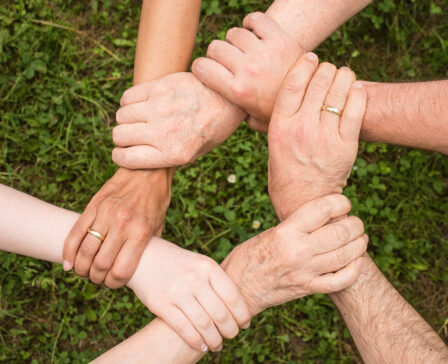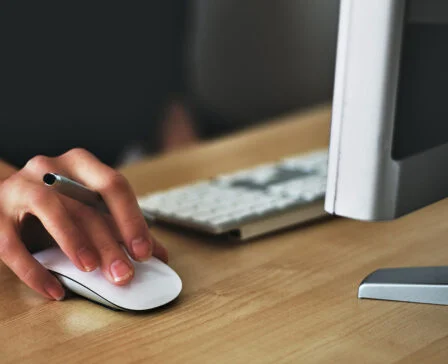Mental Health Awareness Week: 13-19 May 2024
14th May 2024
Mental Health Awareness Week: get moving for good mental health
Mental Health Awareness Week, 13-19 May, focuses on the theme of ‘Movement: moving more for our mental health’. If you’re guilty of finding excuses to avoid exercise, now is the time to invest in your mental and physical wellbeing. It needn’t be strenuous; perhaps just a gentle stroll if you are recovering from surgery and need to take it easy. For someone who is not as mobile, have you considered chair exercises to keep you moving?
The Mental Health Foundation, the charity behind the Mental Health Awareness Week campaign, has set this year’s theme of ‘Movement: moving more for our mental health’, reminding us of the benefits of activity, whether you’re embarking on a new fitness regime or making time for a lunchtime walk. Every step taken can make a difference to how you feel, while improving overall physical health.
It’s no secret that a sedentary life is bad for us, but if you’re recovering from recent ileostomy or internal pouch surgery, in a deskbound role, or perhaps less mobile as a wheelchair user, it can be difficult to get into the habit of keeping active. The NHS also has dedicated fitness advice for wheelchair users.
The answer? Start small – take 10 minutes for a brisk walk to the shops, to stride up and down the stairs, or potter around the garden. Do some stretches, tune into a yoga app, or march on the spot while checking your emails. Just remember to stay hydrated!
Having a stoma doesn’t mean you have to stop. As Sarah Russell, Clinical Exercise Specialist, writes in the spring issue of IA Journal: ‘For the vast majority of people – and that includes those with a stoma – the benefits of exercise far outweigh any risks. Exercise is rarely ‘dangerous’ and most people simply aren’t doing enough. Go on your own journey and find out what works for you.’
Here are Sarah’s top tips for exercising to boost your mental health, as seen in issue 260 of the IA Journal.
Find the joy – keep it easy
I’ve worked in the fitness industry for over 30 years and the biggest mistake people make is to exercise too hard. Forget all your preconceived ideas about exercise.
- Keep it gentle and comfortable – you don’t have to break sweat if you don’t want to.
- Ten minutes will give you benefits for your mental health – a walk around the block or 10 minutes of stretching is perfect. Build from there as your confidence and fitness grows.
- Little and often is most helpful. Don’t put exercise in a ‘box’; integrate movement into your day, each and every day. Bitesize snacks of movement in your day, such as calf raises when boiling the kettle or stretches when watching TV. Ten minutes here and there is so much better and easier.
- Find the joy in movement – explore your body, understand how it works, feel the joy in moving and gratitude for health. Build your confidence and reframe everything you’ve ever thought about exercise.
Rebuild your physical strength and core
After stoma surgery, and especially if you have a hernia, it’s super important to rebuild some muscle strength and your core strength. Not only will you feel more body confident in how you look, but, more importantly, it will rebuild your confidence in your body and how it moves. Feeling able to lift and carry bags, do the housework and shift things about in the garden is empowering and enabling – helping you feel like YOU again. But this only happens with some movement and rehab.
Start with core strength exercises and integrate some strength work using weights or a theraband at home. Ask a physiotherapist for advice or contact me directly.
Get outdoors
We know from research that exercise done near ‘greenery’ (i.e. outdoors, in a garden or park) can boost mood, lower blood pressure, and improve attention and self-esteem more than exercise done indoors. The clear message here is ‘get outside’ if you can, enjoy the wonders of nature and fresh air.
Find a friend or social group
Firstly, it’s important to find the ‘right’ friend or group – someone who won’t push you, is sensitive to your needs and similarly paced fitness to you (or able to support and coach you). Once again, the research points to the significant mental health benefits of doing exercise with a buddy or partner, compared to doing it alone. Increased motivation is also a huge benefit – the simple act of booking a session (in person or online) or arranging to meet a friend or group makes you accountable and much more likely to turn up.
Exercise is medicine
Always remember that exercise is the most powerful medicine that we have, both for our physical and mental health. Movement is as important for us as eating and sleeping. When we start to think about exercise as a health benefit and something that helps us ‘feel better’, we can reframe it and be more motivated to make it happen.
For those less mobile, visit the NHS Sitting exercises webpage for a range of gentle seated exercises including chest stretches, upper-body twists, hip marching and ankle stretches. For more tips on how to get active, visit the Mental Health Foundation.
Join IA’s free online core rehab classes
IA has partnered with clinical exercise specialist Sarah Russell to provide free online core rehabilitation classes for any member with an ileostomy or internal pouch.
Thanks to a generous donor, each month we are able to fund up to eight people to participate in core rehabilitation classes with Sarah through her online studio.
Sarah’s free online exercise programme focuses on building core strength, and is suitable for members of IA who have an ileostomy, internal pouch, have undergone reversal surgery and for those with a parastomal hernia. Classes are based on physiotherapy-led clinical Pilates principles and are suitable for everyone. Find out more and book your place on Sarah’s Specialist Core Rehabilitation Programme.
If you’ve already had ileostomy surgery, or are facing an operation, get in touch to see how we can support you.





